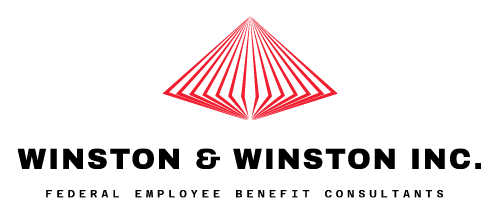
Financial security is a top priority for many, and your 401(k) for federal employees plan stands as a cornerstone of retirement planning. While you dedicate your time and effort to your career, it’s equally important to ensure that your retirement savings are working just as hard for you – here’s how.
How to Help Maximize Your 401(k) Plan
One of the most significant advantages of a 401(k) plan is the employer match. Many companies offer to match a percentage of your contributions, essentially providing you with free money. This matching contribution can substantially boost your retirement savings over time. To take full advantage of this benefit, aim to contribute at least enough to receive the full employer match. Failing to do so is like leaving money on the table – money that could be growing and compounding for your future.
Get the Match
- Budget for the match: Treat your 401(k) contribution as a non-negotiable expense in your budget. Adjust other spending categories if necessary to ensure you can contribute enough to get the full match.
- Gradual increases: If contributing enough to get the full match seems challenging, start with a lower percentage and gradually increase it. Many plans offer an auto-escalation feature that can help with this.
- Use windfalls wisely: Consider allocating a portion of any bonuses, tax refunds, or other windfalls to your 401(k) to help reach the match threshold.
- Understand vesting schedules: Some employers have vesting schedules for their matching contributions. While this shouldn’t deter you from getting the full match, it’s important to understand how it works, especially if you’re considering changing jobs.
Increase Your Deferral Rate
While contributing enough to receive the full employer match is a great start, consider going beyond this baseline. Gradually increasing your deferral rate – the percentage of your salary that you contribute to your 401(k) – can have a profound impact on your retirement savings. Even small increments, such as raising your contribution by 1% each year, can lead to significant growth over time due to the power of compound interest.
Many people find it easier to increase their contributions in sync with annual raises or bonuses. This approach allows you to boost your retirement savings without feeling a significant impact on your take-home pay.
Consider Maxing Out Your Retirement Plan Contribution
For those who are able, consider maxing out your 401(k) contributions. The IRS sets annual limits on how much you can contribute to your 401(k) plan, and these limits are subject to change. In 2024, for example, the maximum contribution limit for employees is $23,000 for those under 50, with an additional catch-up contribution of $7,500 allowed for those 50 and older.
Maxing out your contributions accelerates your retirement savings and provides tax benefits. Traditional 401(k) contributions are made with pre-tax dollars, reducing your taxable income for the year. This can result in substantial tax savings, especially for those in higher tax brackets.
The Power of Roth 401(k) Options
Many employers now offer a Roth 401(k) option alongside the traditional 401(k). This presents a unique opportunity to diversify your tax strategy in retirement. Unlike traditional 401(k) contributions, which are made with pre-tax dollars, Roth 401(k) contributions are made with after-tax dollars. The key benefit here is that qualified withdrawals in retirement are completely tax-free, including any earnings your investments have generated over the years.
Consider your current tax bracket and your expected tax situation in retirement when deciding between traditional and Roth contributions. If you anticipate being in a higher tax bracket in retirement, Roth contributions could be particularly advantageous. They allow you to pay taxes now at your current rate, potentially saving you from higher tax rates in the future.
The Importance of Asset Allocation
While contributing to your 401(k) is crucial, how you invest those contributions is equally important. Take the time to review your plan’s investment options and consider your risk tolerance and time horizon. A well-diversified portfolio that aligns with your financial goals and risk profile can help maximize your returns over the long term.
Many 401(k) plans offer target-date funds, which automatically adjust your asset allocation as you approach retirement. These can be a good option for those who prefer a more hands-off approach. However, it’s still important to periodically review your investments and make adjustments as needed.
Leveraging Catch-Up Contributions
If you’re 50 or older, take advantage of catch-up contributions. These allow you to contribute an additional amount above the standard limit, helping you boost your savings in the important years leading up to retirement. This can be particularly beneficial if you start saving later in life or experience setbacks in your retirement planning.
The Importance of Financial Education
To truly make your 401(k) work harder, invest time in your financial education. Many employers offer resources and workshops on retirement planning and investing. Take advantage of these opportunities to enhance your understanding of personal finance and retirement strategies. The more knowledgeable you are, the better equipped you’ll be to make informed decisions about your 401(k) and overall financial future.
Contact Winston and Winston for Support and to Learn More About Your 401k for Federal Employees
For federal employees looking to optimize their 401(k) plans, specialized guidance can be invaluable. Winston and Winston offer expert advice on the aspects of 401(k) federal employee retirement plans. Our team can help you figure out the details of your plan, maximize your benefits, and develop a comprehensive strategy to ensure your 401(k) is working as hard as possible for your retirement goals. Contact us to learn more and secure your financial future.
